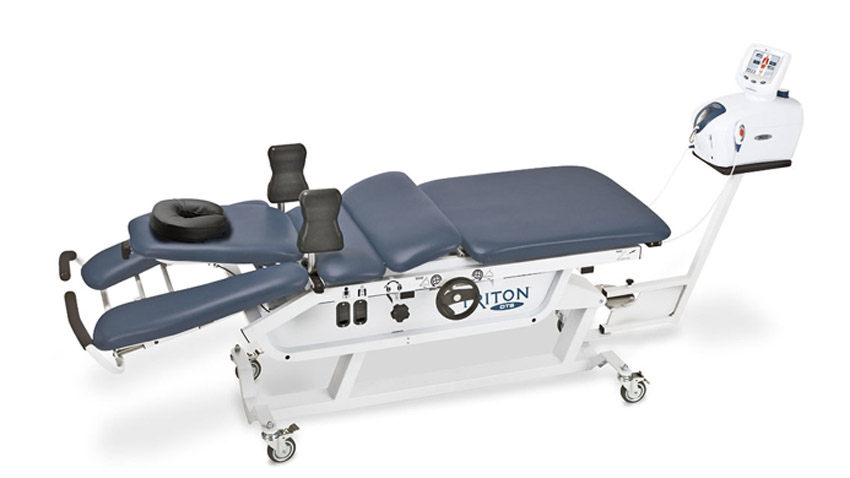
Benefits of Spinal Decompression
People who suffer from severe, chronic pain know how it can utterly disrupt one's life. Pain can make it hard to enjoy even the simplest daily activities and a challenge to carry out exercise routines and other healthy, physical activities. People often live a life of compromise in their activities. Many patients find that as they grow old, episodes of low back pain become more frequent, their pain worsens in intensity, and it takes longer for them to recover. Low back pain has become one of the most significant medical problems in today's world. The statistics on the magnitude of the problem are overwhelming, and the number of chronic back cases continues to grow each day. In fact, low back pain related to work is the most common complaint presented to primary care physicians and workers' compensation.
Triton DTS is a non-invasive treatment known as traction therapy for acute or chronic back pain, radicular pain, and symptoms (leg pain and numbness) from herniated or degenerated discs and facet syndrome. Patients who have had back surgery and continue to have pain (Failed Back Surgery Syndrome) may also benefit from Triton DTS Therapy. Triton DTS is an effective and safe procedure without any risks associated with surgery, injections, or anesthesia.
Millions of people suffer from back pain every year, and 85% of the US population suffers from back or neck pain at some point in their lives (medlineplus.gov, 2016). Suffering from chronic pain can be a massive imposition on a person's life. Enjoying regular activities, the ones that brought you so much joy, may have recently become challenging because of the amount of pain caused by conditions that can be treated with the Triton DTS spinal decompression system. There is absolutely no reason you should have to give up your regular activities for a condition that can be treated without surgery. We understand how everyone's body changes as we age, and back and neck pain can become a chronic condition faster than ever before. Unfortunately, it also takes longer to recover from those painful episodes as we get age.



